Market Decision
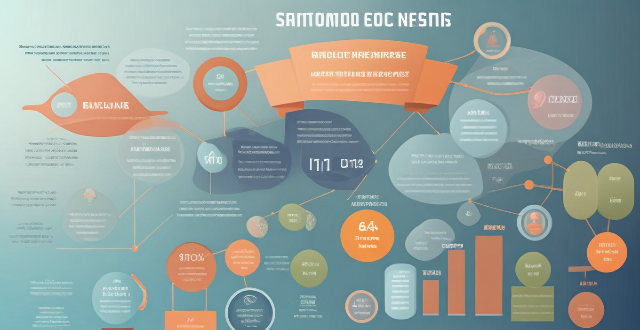
How do economic indicators affect stock market performance ?
Economic indicators significantly impact stock market performance by reflecting the health of an economy. Key indicators include GDP, inflation rate, unemployment rate, interest rates, trade balance, consumer confidence index, and manufacturing index. Each of these measures provides insights into different aspects of economic activity, influencing investor sentiment and decision-making processes. By understanding how these indicators affect the stock market, investors can make informed decisions to maximize returns while minimizing risks.

Can AI replace human decision-making in complex situations ?
Artificial intelligence (AI) has made significant strides in recent years, leading to discussions about its potential to replace human decision-making in complex situations. While AI possesses certain advantages, such as speed and accuracy, it still faces limitations that prevent it from fully replacing humans in decision-making processes. Advantages of AI in decision-making include speed and efficiency, accuracy and consistency, and scalability. However, AI also has limitations such as lack of creativity, ethical considerations, and interpretability. Examples of complex situations where AI may not replace human decision-making include medical diagnosis, legal judgments, and business strategy. In conclusion, while AI has the potential to assist humans in decision-making processes, it cannot fully replace them in complex situations. The combination of AI's analytical capabilities and human creativity, ethics, and intuition will likely lead to better outcomes in these scenarios.

How does the threat of climate change influence our cognitive processes and decision-making ?
The influence of climate change threat on cognitive processes and decision-making is significant. It can affect perception of risk, trigger emotional responses, and alter information processing. Additionally, it shifts priorities in decision-making, necessitates long-term planning, and requires collaboration among various stakeholders.
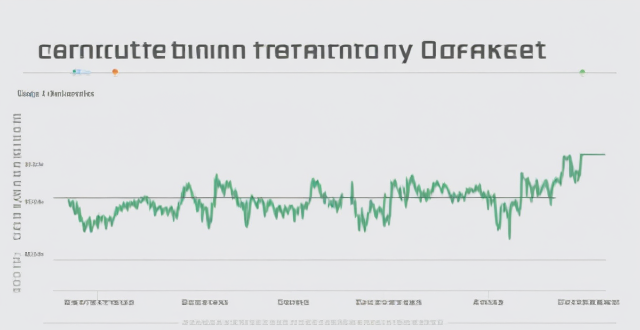
How can I invest in the carbon trading market ?
The carbon trading market offers a lucrative investment opportunity for those interested in environmental sustainability and financial gain. To invest successfully, one should understand the basics of carbon trading, research different carbon markets, choose a broker or exchange, determine an investment strategy, and start trading while managing risk.

What are some common mistakes made in stock market analysis ?
The text discusses common mistakes made in stock market analysis, including relying too heavily on past performance, ignoring market volatility, failing to consider external factors, focusing solely on technical analysis, emotional bias, inadequate diversification, neglecting tax implications, and overconfidence in predictions. To avoid these mistakes, analysts and investors should consider a range of factors beyond historical data, incorporate an understanding of market fluctuations into their analysis, take into account both internal and external influences, use a balanced approach that combines technical and fundamental analysis, maintain objectivity, diversify investments, be aware of tax implications, and remain humble and flexible when dealing with uncertain markets. By avoiding these mistakes, analysts and investors can make more informed decisions and potentially improve their chances of achieving successful outcomes in the stock market.

What are some common mistakes to avoid when investing in the stock market ?
Investing in the stock market can be a great way to grow wealth, but it's important to avoid certain mistakes. Here are some common pitfalls to steer clear of: 1. **Lack of Diversification** - Don't put all your eggs in one basket. By diversifying your portfolio across different asset classes and industries, you reduce risk. 2. **Emotional Decision Making** - Keep emotions out of investing. Impulsive decisions based on fear or greed can lead to buying high and selling low. 3. **Ignoring Fees and Taxes** - High transaction costs and tax inefficiencies can significantly reduce long-term gains. Be mindful of these expenses. 4. **Chasing Hot Tips and Trends** - Acting on unverified tips or getting caught up in short-term trends often leads to overpaying for stocks with no real value. 5. **Ignoring Fundamentals** - Basing investments solely on technical analysis without considering a company's financial health and competitive position is risky. 6. **Timing the Market** - Trying to predict short-term market movements is difficult and often results in missing out on long-term growth opportunities. 7. **Not Having a Plan** - Without a clear investment plan aligned with your goals and risk tolerance, you're more likely to make poor decisions under pressure. 8. **Focusing Too Much on Past Performance** - While historical data can provide insights, it's not a guarantee of future results. Overreliance on past performance can overlook potential risks. 9. **Not Staying Informed** - The markets change, and so does the landscape for individual companies. Continuous learning is crucial. 10. **Overconfidence** - Overestimating your ability to pick winners or timing the market can lead to reckless behavior and significant losses. By avoiding these common pitfalls, you can set yourself up for a more successful journey in the stock market. Patience, discipline, and continuous learning are key components of smart investing.

What role should public opinion play in climate decision-making ?
The text discusses the importance of public opinion in climate decision-making, emphasizing that it can influence policymakers, shape public discourse, and drive action towards addressing climate change. The author outlines ways to influence public opinion, such as education, advocacy, media, and personal action.

Does exercise influence executive functions, such as decision-making and problem-solving ?
Exercise has a positive impact on executive functions, including decision-making and problem-solving. Regular physical activity can enhance cognitive functioning, risk assessment, self-control, creative thinking, working memory, and attention, leading to improved performance in these areas. Incorporating exercise into your lifestyle can benefit both your physical and cognitive health.

What is the current state of the US stock market ?
The US stock market is currently experiencing a mix of positive and negative trends, including strong economic growth and technology sector performance, but also significant market volatility and trade tensions. Factors impacting the market include interest rates, global economic conditions, and geopolitical risks.
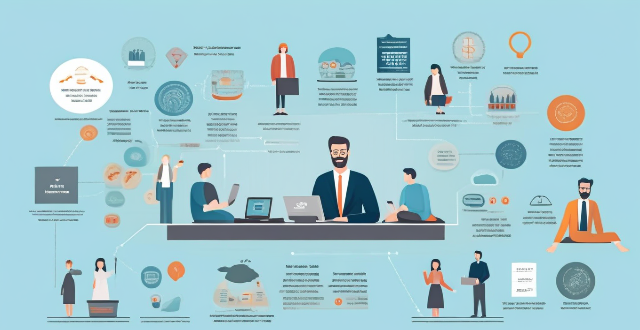
What skills will be most valuable in the future job market ?
The future job market is rapidly evolving, driven byThe future job market is rapidly evolving, driven byization, and changing socie driven by technological advancements, globalization, and changing societal needs. As we look ahead, certain skills will become increasingly valuable to both individuals and organizations alike. Here are some of the most important skills that are likely to be in high demand in the coming years: critical thinking and problem-solving, digital literacy, adaptability and learning agility, communication and collaboration, leadership and management, ethical awareness and social responsibility. By focusing on developing these key areas, individuals can position themselves for success in the ever-evolving landscape of work.

What are the best practices for pricing items in a second-hand market ?
When selling items in a second-hand market, it's essential to follow best practices for pricing to maximize profits and ensure a smooth transaction. Key tips include researching market value, considering the item's condition, setting a fair price, being open to negotiations, and updating the listing regularly. By following these guidelines, sellers can attract more potential buyers and increase their chances of making a successful sale.

What are the challenges and opportunities for developing countries in the carbon trading market ?
Challenges and opportunities for developing countries in the carbon trading market include lack of infrastructure, legal and regulatory hurdles, market access and information asymmetry, capacity building needs, economic growth and investment, technology transfer and innovation, environmental sustainability, policy influence and leadership.

How does climate change exacerbate gender inequality in access to resources and decision-making ?
Climate change exacerbates gender inequality by disproportionately affecting women and girls in access to resources and decision-making. Women often have limited access to resources such as water, food, and land due to cultural norms, lack of education, and poverty. They also have limited participation in decision-making processes due to cultural norms and lack of education. To address these issues, it is important to prioritize gender equality in climate change adaptation and mitigation strategies by ensuring that women's voices and experiences are taken into account when making decisions.

How has social distancing impacted the economy and job market ?
Social distancing measures have had a significant impact on the economy and job market, including decreased consumer spending, supply chain disruptions, high unemployment rates, increased demand for remote work, and changes in job seeking behavior.
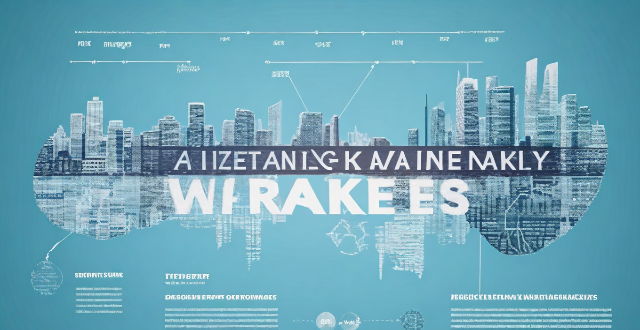
What are some best practices for integrating climate risk into investment decision-making processes ?
As climate change continues to affect financial markets, integrAs climate change continues to affect financial markets, integr decision-making processes is becoming integrating climate risk into investment decision-making processes is becoming increasingly important. Best practices for doing so include assessing climate risk in the investment process, incorporating climate risk into investment analysis, monitoring and reporting on climate risk exposure, and collaborating with other stakeholders. These practices help investors manage climate risk effectively and make informed investment decisions that align with sustainability goals.

How do political events affect the stock market, and how can they be analyzed ?
This comprehensive analysis explores the impact of political events on the stock market, including economic policies, regulatory changes, international relations, and elections. It also provides strategies for analyzing their potential effects, such as staying informed, diversifying your portfolio, using technical and fundamental analysis, and monitoring sentiment indicators.

How can we involve vulnerable populations in climate decision-making processes to protect their rights ?
The text discusses the importance of including vulnerable populations, such as the poor, elderly, children, and those with disabilities, in climate decision-making processes. It highlights the reasons for their inclusion, strategies to facilitate their participation, effective communication channels, policy recommendations, and success stories. The text emphasizes the need for accessibility, language support, child-friendly approaches, financial support, community workshops, door-to-door outreach, social media campaigns, and art and storytelling to reach out to these populations. It also suggests legal mandates, funding priorities, and monitoring and evaluation as policies to support inclusivity. Overall, the text argues that involving vulnerable populations in climate decision-making is crucial for equity, diversity of perspectives, and effective solutions.

How has the COVID-19 pandemic impacted the stock market, and what insights can be gained from this analysis ?
The COVID-19 pandemic has caused increased volatility and uncertainty in the stock market. Certain industries, such as travel and hospitality, have been negatively impacted while others, like healthcare and technology, have experienced growth. Government interventions aimed at mitigating economic effects have both stabilized markets and created long-term concerns. The rise of remote work and digital transformation has benefitted companies able to adapt quickly. As economies begin to recover with widespread vaccination, investors should monitor developments closely to make informed decisions.

What is the carbon trading market ?
The carbon trading market is a financial mechanism that allows for the trading of emissions reductions to meet greenhouse gas emission targets. It is based on cap-and-trade, where a limit is set on total emissions and those who reduce their emissions below the cap can sell their surplus allowances. Key components include carbon credits, emissions caps, trading mechanisms, verification and certification, and regulation and governance. Benefits include cost-effectiveness, flexibility, innovation incentives, and global collaboration. Challenges and criticisms include equity concerns, market inefficiencies, environmental integrity, and political will. The carbon trading market serves as a crucial tool in the fight against climate change but requires ongoing attention and improvement to maximize its effectiveness.

What is the role of macroeconomic indicators in stock market analysis ?
The article discusses the importance of macroeconomic indicators in stock market analysis, highlighting key indicators such as economic growth, inflation, interest rates, employment, and government policies. It suggests monitoring these indicators to identify trends and patterns that can impact the stock market, integrating this analysis with other tools for a comprehensive view.

What is the role of a broker in the stock market ?
Brokers play a key role in the stock market, acting as intermediaries between investors and financial markets. They facilitate trades, provide market information, offer investment advice, manage accounts, and execute complex trades. Their expertise helps investors make informed decisions and manage their portfolios effectively.

What role does natural gas play in the global energy market ?
Natural gas is a key player in the global energy market due to its environmental advantages, economic benefits, contributions to energy security, technological advancements, and versatile applications across sectors.

What is the difference between a bull and bear market ?
The main difference between a bull and bear market lies in the direction of the market trend and the overall sentiment among investors. Bull markets are characterized by rising stock prices and optimism, while bear markets are characterized by falling stock prices and pessimism.
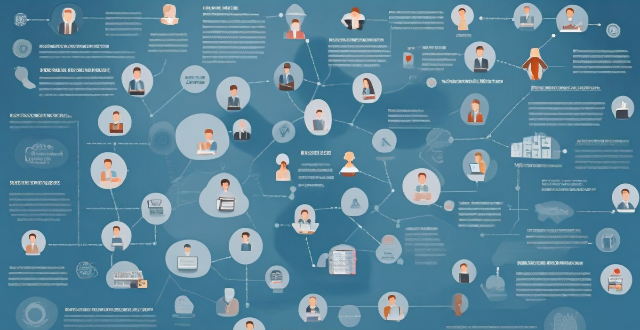
How might a lunar base influence the global economy and job market ?
The establishment of a lunar base could significantly impact the global economy and job market by increasing investment in space technology, creating new industries, driving innovation, and fostering international collaboration. It could also create numerous job opportunities and expand educational opportunities focused on space-related disciplines.

What is the stock market and how does it work ?
The stock market is a financial ecosystem where investors can buy and sell ownership shares of publicly traded companies. Companies use it to raise capital, while investors aim to share in the company's success. Prices of stocks are determined by supply and demand, influenced by various factors including company performance, market trends, and economic conditions. The market is regulated to protect investors and maintain fairness. Investing in stocks comes with risks but also offers potential rewards, making it a popular choice for long-term investments.

How can I protect my growing wealth from market fluctuations ?
Market fluctuations are a natural part of any investment journey. However, as your wealth grows, it becomes increasingly important to implement strategies that can help protect your assets from the ups and downs of the market. Here's how you can do it: - Diversify Your Portfolio - Use Hedging Strategies - Stay Updated on Economic Indicators - Regularly Review and Rebalance Your Portfolio - Work with Financial Advisors

How do I invest in the stock market ?
The text provides a step-by-step guide on how to invest in the stock market. It emphasizes the importance of education, determining investment goals, choosing a strategy, opening a brokerage account, selecting investments, monitoring them, and maintaining patience and discipline. The process involves learning about different types of stocks, understanding risks, diversification, and risk management. It also includes researching brokerage firms, funding an account, choosing individual stocks or mutual funds based on company performance, and staying informed about market changes. Overall, the text encourages potential investors to approach stock market investing with careful planning and research to achieve their financial goals over time.

What is the importance of market trends in stock analysis ?
Market trends play a crucial role in stock analysis by providing insights into the overall direction and momentum of the market. There are three types of market trends: uptrends, downtrends, and sideways trends. Understanding market trends is essential for making informed investment decisions. By analyzing market trends, investors can identify potential opportunities and risks associated with specific stocks or sectors. To effectively use market trends in stock analysis, investors should first identify the current market trend and then analyze individual stocks or sectors relative to the overall market. Make informed investment decisions based on your analysis of market trends and individual stocks or sectors. Monitor changes in market trends and adjust your investment strategy accordingly.

How is renewable energy affecting the traditional energy market ?
Renewable energy sources are having a significant impact on the traditional energy market, affecting pricing, market share, job creation, and environmental concerns. The increased efficiency and reduced installation costs of renewable technologies have made them more competitive with traditional energy sources, leading to declining electricity prices overall. Additionally, the growing demand for renewable energy sources has led to an increase in their market share, particularly for solar and wind power. The transition to renewable energy is also creating new job opportunities across various sectors of the economy, while addressing environmental concerns associated with fossil fuel consumption.

What are the risks involved in investing in the stock market ?
The stock market offers lucrative opportunities for investors but also comes with its own set of risks. These include: - Market Risk, which affects the entire market and cannot be diversified away; - Liquidity Risk, where you may not be able to sell your shares quickly enough; - Interest Rate Risk, affecting bond investors and stock prices; - Business Risk, related to a company's performance declining due to factors such as poor management or increased competition; - Inflation Risk, where inflation erodes the purchasing power of your investments; - Political Risk, impacting your investments due to political events; - Currency Risk, affecting those who invest in foreign markets.